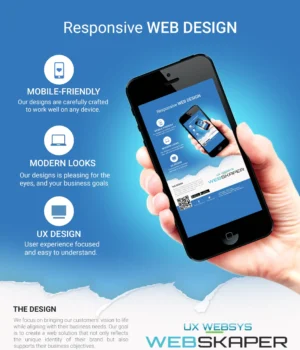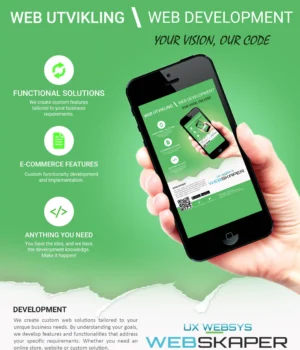Back by popular demand! We’re taking a look at one of our most insightful episodes: Enterprise Clients and the Business of WordPress. Whether you missed it the first time or just want a refresher, we rewind and look back at the importance of WordPress with Enterprise businesses. Join WordPress Executive Director Josepha Haden Chomphosy as she discusses the role WordPress Enterprise plays along with the WordPress community.
Credits
Host: Josepha Haden Chomphosy
Editor: Dustin Hartzler
Logo: Javier Arce
Production: Brett McSherry
Song: Fearless First by Kevin MacLeod
Show Notes
- WordPress Enterprise
- NASA Website (beta)
- WordPress TV
- Learn WordPress
- Small List of Big Things
- Have a question you’d like answered? Submit them to WPBriefing@WordPress.org.
Transcript
Josepha: Hello, everyone, and welcome to the WordPress Briefing, the podcast where you can catch quick explanations of the ideas behind the WordPress open source project, some insight into the community that supports it, and get a small list of big things coming up in the next two weeks. I’m your host, Josepha Haden Chomphosy. Here we go.
(Music intro)
Josepha: In a previous episode, we talked about the Community Summit and some trends that I was seeing. I’ve spent a lot of time since then summarizing the notes from each session, and I was processing notes from the session about aligning WordPress Enterprise and WordPress Community, which is a session that explored the various strengths and weaknesses of WordPress from an enterprise perspective, but especially when it comes to contributing to or communicating about WordPress.
Now, my vantage point on analyses like these is generally pretty different. Since I work mainly in an operations space for the project, I’m almost always looking at the health and safety of our ecosystem, product excellence, funding, things like that. So, I especially like to attend sessions that are from the vantage point of people who are much closer to the work than I am.
Josepha: When I looked at the brainstormed list of things from the session, my first inclination was to catalog the relationships between what we saw as a positive or a negative and the things that we saw as intrinsic to us versus part of the environment. But the more I look at it, the more I see that there’s confirmation of what I have always known to be true. That WordPress is a valuable starting point for web-based solutions of all sizes and any purpose. Let’s take a look at some of the biggest themes that shine through from that session. I was able to distill them down to about nine primary themes, but I especially want to focus on some that come up year after year in talking with our community.
Josepha: The first, of course, is the community and ecosystem. If you’ve listened to this podcast 62 times, then you’ve heard me say at least like 60 times that the community is what sets us apart from other open source projects. But, I would encourage you to expand that understanding to include the ecosystem that the community provides.
The community not only helps to plan and create WordPress, our primary software, but it also makes it distributable through the Polyglots team and Accessibility and Docs and Training. It also makes it extendable through plugins and themes, and all of the work that goes into reviewing plugins and themes, and the support that’s provided to people who come to the WordPress.org site, trying to figure out how to make this thing work for them.
And we also, this community, make it knowable, not only through the community part with our event series but also in marketing and the videos that we provide on WordPress TV and all of the training and learning cohorts that we provide on learn.WordPress.org, all of those teams make WordPress learnable and knowable and easy to use and usable to more people and available across the world, regardless of whether you speak English or not. And so yeah, the community and the ecosystem is one of the things that makes WordPress valuable for enterprise, but also WordPress valuable in general.
Josepha: The second is the software’s usability and flexibility. We exist for as long as people want to use our software, and that’s a funny little two-sided coin for us. WordPress remains very usable for folks who come to it in the same way that I came to it, which is as a user who is trying to accomplish a goal unrelated to WordPress. I didn’t start using WordPress because I wanted to figure out how WordPress worked or because I wanted to figure out how to contribute to WordPress. I came to WordPress because I was trying to market something, and WordPress was the best choice for that. But it’s also flexible for our brilliant developers out there who are doing things like building a suite of sites for NASA or creating bespoke social networks. So, our usability and flexibility, both of those things working together, are certainly one of the things that make me know that WordPress is incredibly valuable for anyone who needs to use it.
Josepha: But the final thing is WordPress’s longevity or our resilience. So, I used to work at a marketing agency that served enterprise-level clients. And any time we pitched a new site build to a client, one of the main elements of discussion during decision-making was how long the decision would last. Do you want a page that you can launch in a day, run a six-week campaign through, and then abandon it forever? Or do you want a site that can take up to six weeks to build but can be yours to refine and hone for years after that? I know this seems like a silly example, but when you’re looking at the potential for a long-term bet, what you’re worried about, what you’re asking is, is this a software trusted in my industry? Is it time-tested by those companies I aspire to be? Is the available workforce composed of seasoned professionals or flash-in-the-pan peddlers of the latest craze? And of that workforce, how many will still be doing this in five years?
Josepha: The question of how long we’ve been doing this and why it matters that WordPress has been here for 20 years and has no intention of going anywhere should be so much higher on everyone’s list of reasons to use this software. Yes, the WordPress software is powerful enough to be everything you might want it to be someday, but the WordPress ecosystem brought to us by this community has shown resilience through major breaking changes in 2008, 2016, 2018, 2020, and probably a lot of things between there that we have forgotten. So, if I were hoping to hedge my bets on a long-term solution, I would absolutely place those bets on this community, this ecosystem, and this software.
(Music interlude)
Josepha: That brings us now to our small list of big things.
There are some upcoming WordPress meetings. You can find those on make.WordPress.org/meetings, I think. So really, really easy URL to remember. You can join your fellow community members and contribute to the WordPress project there.
Josepha: And I also wanted to just call your attention to a few really big projects that still need a little bit of help around the project. So, on the one hand, we have Data Liberation. That is still a really big project, but specifically, we are nearly ready to start working on some user-facing elements of that. It is being powered by Playground, and because the data liberation, the migration of one site to another, is so complex, once we get those elements built into Playground, I think it also stands to fix a bunch of the problems that we have across our user flow, our user experience for the project. Things like having better theme previews and being able to get a sense for what a plugin functionally will do for you versus what it says it’s going to do for you. And getting a sense for what the admin looks like, all of those things. And so, anyone who wants to learn more about contributing to Playground or to Data Liberation, I absolutely encourage you to go check out those meetings, see what’s happening, and get your hands a bit dirty with that.
Josepha: We also have a bunch of stuff happening in our community space. If you had received this podcast from somebody because they were like, hey, I know someone who might like WordPress or who has just learned WordPress and has never been to an event or any other reason that you are listening to this but don’t yet know the community, there is an easier option than just jumping straight into a WordCamp like I did. You can go to a meetup. You can see there’s a widget in your dashboard that’ll tell you what your nearest event is, but if you put your location into that widget, and nothing comes up. Technically, that means that you have an opportunity to bring a bunch of people together to teach you stuff you wish you knew about your site right now. So you can wander over into your dashboard and see those, or you can also head over to the community area on make.WordPress.org and anybody over there is happy to help you get started. And let me tell you, it is a very low-effort sort of thing to do. Here again, perfection’s not the point. And so that, my friends, is your small list of big things.
Josepha: Don’t forget to follow us on your favorite podcast app or subscribe directly on WordPress.org/news. You’ll get a friendly reminder whenever there is a new episode. If you liked what you heard today, share it with a fellow WordPresser. Or, if you had questions about what you heard, you can share those with me at WPBriefing@WordPress.org. I am your host, Josepha Haden Chomphosy. Thank you for tuning in today for the WordPress Briefing, and I’ll see you again in a couple of weeks.
(Music outro)
Brett McSherry
Les mer
Kilde: WordPress News
This post is also available in:
 English
English





